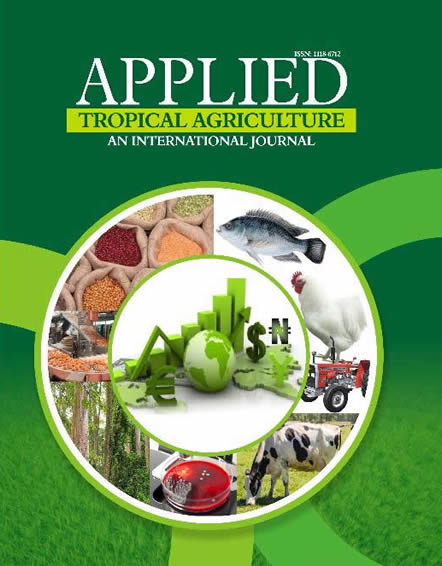Nigeria has experienced a remarkable degradation and depletion of its forest resources over the years. This process has
undermined the socio-economic and socio-cultural importance of the forests for millions of rural people who depend on the
resource to support their livelihood. This has exacerbated landlessness, land conflict and rural poverty. Meanwhile the
government of Ondo State in its effort to manage the menace introduced taungya plantation system adopted as a strategy to
sustainable livelihood. The study was therefore undertaken to assess the socio-economic impact of the taungya system on
livelihood of the rural economy in Ondo State, Nigeria. Survey of 268 randomly selected farmers in five villages in and around
Oluwa forest reserve, Ondo State, Nigeria confirmed that large percentage of the farmers were illiterate, within the age bracket
of 41-50. A statistically significant difference was detected in income from taungya and non-taungya farming practices. However,
about 3.73 percent of non-taungya farmers are not aware of the taungya system and 38.81 percent not being interested while
35.07 percent were satisfied with their current farming practice. The results showed that taungya farming system is mostly
influenced by income level and farm size of the farmers and that they made gains in food crops yields and income generation,
which reduced poverty considerably as compared with non-taungya farmers. Institutions which promote rural development and
awareness of taungya system should incorporate the system into development agenda to enable rural households improve upon
their livelihood and know-how of the system.
PAPER TITLE :ASSESSMENT OF SOCIO-ECONOMIC IMPACT OF TAUNGYA SYSTEM IN OLUWA FOREST RESERVE, ONDO STATE, NIGERIA
APPLIED TROPICAL AGRICULTURE | VOLUME 20 NUMBER 2 2015
Paper Details
- Author(s) : Adeoye, I.A., Agbeja, B.O.and Ajewole, O.I.
- Abstract:


